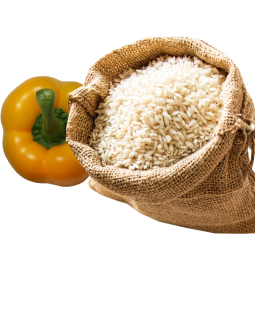Ghana (October 13, 2022) —New research shares policy recommendations for strengthening food donations in Ghana to help mitigate food waste, hunger, and climate change. Produced by the Harvard Law School Food Law and Policy Clinic (FLPC) and The Global FoodBanking Network (GFN) with support from the Walmart Foundation, the findings on Ghana build on earlier research as part of The Global Food Donation Policy Atlas, which offers a global examination of laws and policies affecting food donation around the world.
Approximately 3.2 million tons of food is either lost or wasted along the supply chain in Ghana, costing about 762.32 billion in Ghanaian cedis (GH₵), while half the population is moderately to severely food insecure. The Atlas project research identified four actionable policy recommendations designed to reduce food waste and redirect it to people experiencing hunger or food insecurity in Ghana:
“The Global Food Donation Policy Atlas shares recommendations vital to helping combat hunger, food waste, and climate change,” said Emily Broad Leib, faculty director at FLPC and clinical professor of law at Harvard Law School. “Our research not only reveals how much food is wasted around the world but also may motivate national leaders, food producers, retailers, and others to act. This is a problem we can solve.”
“Creating a means of sustainable nutrition for vulnerable families and communities is very important if backed with relevant data and analysis on where stakeholders can work together to connect excess within the supply chain to vulnerable individuals,” said Chef Elijah Addo, Executive Director of Food For All Africa. “The Global Food Donation Policy Atlas report for Ghana is a step in the right direction for tackling food waste and hunger in Ghana. We are grateful to GFN, FLPC, and its partners for making it possible.”
“An estimated 702-828 million people are facing hunger globally, and that number is likely to rise as food price spikes, supply chain issues, and climate change continue to strain our food systems,” said Lisa Moon, president and CEO of The Global FoodBanking Network. “Food banks help ensure more people have access to food while also reducing food loss and waste. Strong food donation policies are absolutely critical to this work—they help food banks serve their communities in the most effective and efficient way.”
The Global Food Donation Policy Atlas identifies the existing laws and policies that currently support food recovery and donation, featured in a comprehensive Legal Guide, and Policy Recommendations for strengthening frameworks and adopting new measures to fill existing gaps. The analysis featured in these country-specific reports are also encapsulated in an interactive atlas tool that allows users to compare policies between countries participating in the project.
Find legal guides, policy recommendations, and executive summaries for Ghana as well as for Argentina, Australia, Canada, Chile, Colombia, Costa Rica, the Dominican Republic, Ecuador, Guatemala, India, Indonesia, Kenya, Mexico, Nigeria, Peru, Singapore, South Africa, the United Kingdom, and the United States at atlas.foodbanking.org.
###
About The Harvard Law School Food Law and Policy Clinic
The Harvard Law School Food Law and Policy Clinic (FLPC) serves partner organizations and communities by providing guidance on cutting-edge food system issues, while engaging law students in the practice of food law and policy. FLPC’s work focuses on increasing access to healthy foods, supporting sustainable production and regional food systems, promoting community-led food system change, and reducing waste of healthy, wholesome food. FLPC is committed to advancing a cross-sector, multi-disciplinary and inclusive approach to its work, building partnerships with academic institutions, government agencies, private sector actors, and civil society with expertise in public health, the environment, and the economy. For more information, visit https://chlpi.org/flpc.
About Lagos Food Bank Initiative
Food For All Africa is a non-profit organization specialized in fighting hunger and food waste through technology, diversity and innovation. Food For All Africa creates effective programs addressing hunger issues by creating partnerships with those who care about the underprivileged and hungry people in Ghana and sub Saharan Africa. For more information, visit https://foodforallafrica.com.
About The Global FoodBanking Network
The Global FoodBanking Network supports community-led solutions to alleviate hunger in nearly 50 countries. While millions struggle to access enough safe and nutritious food, nearly a third of all food produced is lost or wasted. We’re changing that. We believe food banks directed by local leaders are key to achieving Zero Hunger and building resilient food systems. For more information, visit foodbanking.org.
